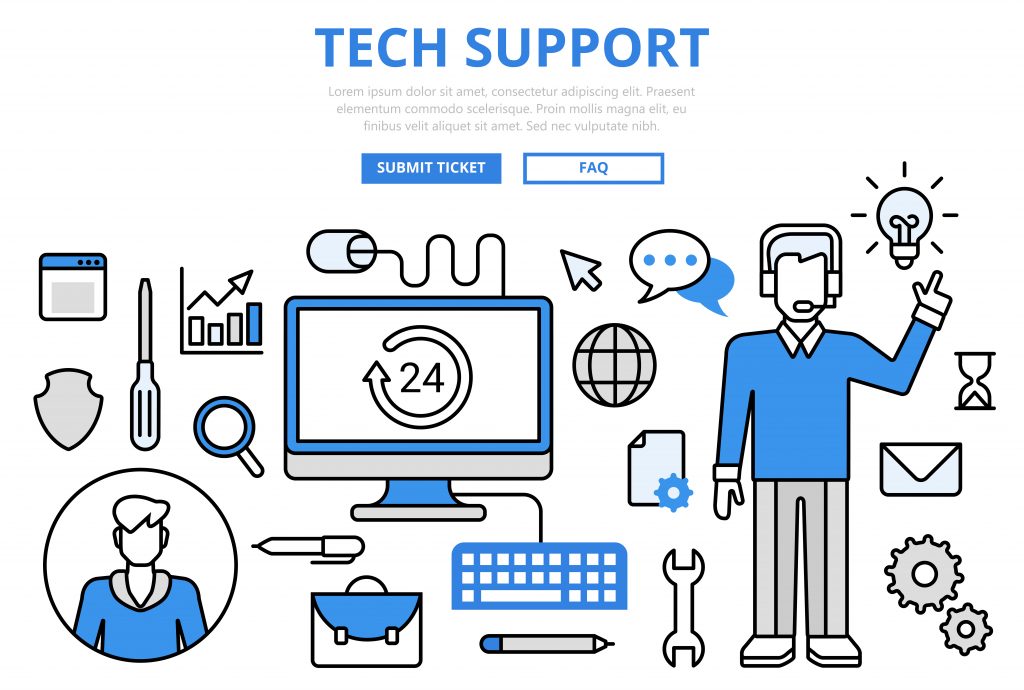How to Succeed as a Freelancer or Gig Worker

Introduction
The gig economy has seen significant growth in recent years, with an increasing number of people choosing to work as freelancers or gig workers/independent contractors rather than in traditional employment roles. According to Zety.com, there are currently around 59 million gig workers, which is around 36% of all United States employees.
While this flexible and independent way of working can be rewarding, it can also be challenging, as you are responsible for finding your clients and projects and managing your own time and tasks. If you are thinking of starting a freelance or gig work business or are already working as a freelancer or gig worker and want to improve your success, read on for some tips and strategies on how to succeed in the gig economy.
Tips and Strategies
Define your niche
It’s essential to clearly focus on what services or skills you offer as a freelancer or gig worker. This will help you attract the right clients and projects and also allow you to position yourself as an expert in your field. Take some time to identify your strengths and areas of expertise, and consider how these can be used to solve problems or meet the needs of potential clients.

Here are a few benefits of defining your niche:
- It helps you stand out: There is a lot of competition for work in the gig economy, and having a clear niche can help you stand out from the crowd. By focusing on a specific area of expertise, you can differentiate yourself from other freelancers or gig workers who may offer more general or broad services.
- It helps you tailor your marketing efforts to target specific clients and projects that align with your skills and expertise: By defining your niche, you can tailor your marketing efforts to target potential clients and projects that align with your skills and expertise. By targeting a specific niche, you can better address the needs and pain points of your potential clients and demonstrate how your services can offer solutions. This can be more effective than trying to appeal to a wide range of clients and industries.
- It helps you attract higher-paying clients: Clients are often willing to pay more for specialised expertise, so having a clear niche can help you command higher rates for your services.
- It allows you to become an expert in your field: By focusing on a specific area of expertise, you can become an expert in your field and be seen as a go-to resource for your clients. This can lead to repeat business and referral opportunities.
To define your niche, start by identifying your strengths and areas of expertise. Consider what types of services or skills you have that could be valuable to potential clients, and think about how you can use these to solve problems or meet the needs of your target market. You may also want to research your market to see what types of services are in demand and where there may be gaps or opportunities for you to fill. Once you have identified your niche, be sure to clearly communicate it on your website and other marketing materials, in order for potential clients to understand the specific value and expertise you provide.
Build a strong online presence
In the gig economy, much of your business will be conducted online, so it’s important to have a strong online presence. This presence should include a professional website that highlights your skills and experience, as well as LinkedIn and other social media accounts where you can connect with potential clients. Be sure to regularly update your online profiles with new projects and accomplishments, and consider creating a blog or portfolio to showcase your work.

Enhance your online presence as a freelancer or gig worker by implementing these strategies:
- Create a professional website: Your website should be the central hub of your online presence and should include information about your services, your experience and qualifications, and any relevant samples of your work. Be sure to include a clear call to action, such as a contact form or email address, so potential clients can easily get in touch with you.
- Use LinkedIn to showcase your skills and experience: LinkedIn is a valuable tool for freelancers and gig workers, as it allows you to connect with potential clients and showcase your skills and experience. Be sure to create a comprehensive profile that includes a professional headshot, a clear summary of your skills and experience, and any relevant samples of your work.
- Utilise social media: Social media platforms like Twitter, Facebook, Instagram, Pinterest, YouTube, and Tiktok can be useful for connecting with potential clients and promoting your services. Choose the platforms that are most relevant to your business and industry, and use them to share updates about your work, industry news, and other relevant content.
- Keep your online presence up to date: Be sure to regularly update your online profiles and website with new projects and accomplishments, and consider creating a blog or portfolio to showcase your work. This will help demonstrate your expertise and keep your online presence fresh and relevant.
A strong online presence will make it easy for potential clients to find and connect with you and will enable you to present your skills and experience in a professional and organized way.
Network and market yourself
As a freelancer or gig worker, you are responsible for finding your own clients and projects. This means you need to be proactive about marketing yourself and building a network of contacts. Participate in industry events and conferences, become a member of relevant online groups or forums, and reach out to potential clients and collaborators on social media. Don’t be afraid to reach out and introduce yourself – you never know where your next opportunity might come from.

Here are a few strategies for networking and marketing yourself in the gig economy:
- Participate in industry events and conferences: Attending industry events and conferences is a great way to meet potential clients and collaborators and stay up to date on industry trends and developments. Be sure to bring business cards and be prepared to talk about your skills and experience.
- Join online groups or forums: There are many online groups and forums dedicated to specific industries or fields, and these can be great resources for networking and finding new clients. Look for groups related to your niche and participate in discussions to build your network and showcase your expertise.
- Connect with potential clients and collaborators on social media: Social media platforms like LinkedIn, Twitter, and Facebook can be useful for connecting with potential clients and collaborators. Follow industry leaders and companies that might be interested in your services, and consider reaching out to them to introduce yourself and your business.
- Leverage your current network: Your current network of friends, family, and colleagues can be a valuable resource for finding new clients and projects. Be sure to let them know you are available for freelance or gig work, and ask if they know of anyone who might be interested in your services.
- Use your website and online profiles to promote your services: Your website and online profiles are important marketing tools, so be sure to use them to promote your services and showcase your skills and experience. Make it easy for potential clients to contact you by including a clear call to action, such as a contact form or email address, on your website and other marketing materials.
By networking and marketing yourself effectively, you can build a strong pipeline of clients and projects and position yourself as a valuable resource in the gig economy.
Set clear boundaries
Working as a freelancer or gig worker can be both rewarding and challenging, and it’s important to set clear boundaries to ensure you are able to work effectively and maintain a healthy work-life balance. This includes setting specific working hours, setting clear expectations with clients, and taking breaks to recharge and avoid burnout.

Consider the following strategies for establishing boundaries as a freelancer or gig worker:
- Set specific working hours: As a freelancer or gig worker, you are responsible for managing your own time, so it’s important to set specific working hours to ensure you are able to get your work done while also having time for other activities and responsibilities. Determine how many hours you are willing and able to work each week, and stick to a schedule that works for you.
- Communicate your availability to clients: Let your clients know when you are available to work and when you are not. This can help prevent misunderstandings and ensure you are able to manage your workload effectively.
- Set clear expectations with clients: Ensure that you and your clients are clear on project scope, deadlines, and other expectations to avoid misunderstandings. Having clear and agreed-upon expectations can help prevent misunderstandings and ensure you are able to deliver high-quality work.
- Take breaks: Working as a freelancer or gig worker can be intense at times, so it’s important to take breaks to recharge and avoid burnout. Schedule breaks throughout the day, and make sure you take time off on the weekends or holidays to relax and recharge.
By setting clear boundaries, you can work more effectively and avoid burnout, which will help you succeed as a freelancer or gig worker in the long run.
Stay organised and manage your time effectively.
As a freelancer or gig worker, you are responsible for managing your own time and tasks. This means it’s important to stay organised and develop effective time management skills. Use tools like project management software, calendars, and to-do lists to keep track of your workload and prioritise tasks.

Here are a few tips for staying organised and managing your time effectively:
- Use project management software: There are many project management tools available that can help you keep track of your workload and prioritise tasks. These tools can be especially helpful if you are working on multiple projects at once, as they allow you to track progress, assign tasks to team members, and set deadlines.
- Use calendars and to-do lists: Keep a calendar to track your commitments and deadlines, and use a to-do list to keep track of tasks that need to be completed. Consider using a digital tool like Microsoft 365, Google Workspace, or Trello to make it easy to access and update your calendar and to-do list from anywhere.
- Set aside dedicated work time: Avoid the temptation to multitask or switch between tasks too frequently, as this can be inefficient and lead to burnout. Instead, set aside dedicated blocks of time to focus on specific tasks or projects.
- Break tasks into smaller chunks: To make large or complex tasks more manageable, try dividing them into smaller, more manageable pieces. This can help you stay focused and make progress on your tasks more quickly.
- Eliminate distractions: Distractions like email, social media, and phone notifications can interrupt your workflow and make it difficult to focus. Try setting aside specific times to check emails and social media, or use tools like Freedom or Focus To-Do to block distracting websites and apps.
By staying organised and managing your time effectively, you can work more efficiently and get more done as a freelancer or gig worker.
Build a strong support network
Working as a freelancer or gig worker can be isolating at times, so it’s important to have a strong support network of friends, family, and colleagues to lean on for guidance and encouragement. Consider joining a professional association or networking group or finding a mentor or coach to help you stay motivated and on track.

Consider the following strategies for building a strong support network:
- Join a professional association or networking group: Many industries have professional associations or networking groups that bring together freelancers and gig workers. These groups can be a great resource for finding support, sharing advice and best practices, and connecting with potential clients and collaborators.
- Find a mentor or coach: Consider finding a mentor or coach who can provide guidance and support as you navigate the gig economy. This can be especially helpful if you are just starting out as a freelancer or gig worker, as they can provide valuable advice and insights based on their own experiences.
- Connect with other freelancers or gig workers: Building relationships with other freelancers or gig workers can be a great way to find support and share ideas. Consider joining online groups or forums where you can connect with others in your industry or field or attend events or meetups specifically for freelancers and gig workers.
- Lean on friends and family: Don’t forget about the support of your friends and family. They can be a great source of encouragement and motivation and can offer a different perspective when you are facing challenges or making decisions about your business.
By building a strong support network, you can have access to resources and guidance to help you succeed as a freelancer or gig worker.
Stay up to date
As a freelancer or gig worker, it’s important to stay current on industry trends and developments in your field. This may involve taking continuing education courses or attending workshops and conferences to stay up to date on the latest tools, techniques, and best practices.

Here are a few tips for staying up to date in the gig economy:
- Subscribe to industry publications and blogs: Keep an eye on industry publications and blogs to stay informed about new developments and trends in your field. Many publications offer newsletters or alerts that can help you stay up to date without having to constantly search for new information.
- Follow thought leaders and experts on social media: Many industries thought leaders and experts share their insights and knowledge on social media platforms like Twitter and LinkedIn. Follow these individuals and companies to stay informed about what they are working on and learning.
- Attend workshops, webinars, and conferences: Workshops, webinars, and conferences can be a great way to learn new skills and stay up to date on industry trends. Many of these events offer online options that make it easy to participate from anywhere, even if you are unable to travel.
- Take continuing education courses: Continuing education courses offered by professional associations and educational institutions can help you keep abreast of the latest tools and techniques in your field. These courses can be a great way to learn new skills and stay current on industry standards.
By staying up to date, you can ensure that you are offering your clients the most current and relevant services, which can help you succeed as a freelancer or gig worker in the long run.
Final
Freelancers and gig workers have the freedom to be their own boss and select their own projects and clients. While this can be rewarding, it can also be challenging, as you are responsible for finding your own work and managing your own time and tasks. Implementing the tips and strategies will set you up for success in the gig economy.
It’s important to define your niche and focus on a specific area of expertise. This can help you stand out from the competition and attract higher-paying clients. Next, build a strong online presence by creating a professional website and utilising social media and LinkedIn to showcase your skills and experience. Networking and marketing yourself are also key, so be sure to attend industry events, join online groups and forums, and connect with potential clients and collaborators on social media.
Also, setting clear boundaries and staying organised, and managing your time can help you work more efficiently and avoid burnout. Finally, don’t forget the importance of building a strong support network of friends, family, and colleagues, and make sure to stay up to date on industry trends and developments to ensure you are offering your clients the most current and relevant services.
Remember, building a successful business as a freelancer or gig worker takes time and effort, but the rewards of being your own boss and having the freedom to choose your own projects and clients can be well worth it. By following these tips and strategies, you can set yourself up for success in the gig economy.
Good luck with this freelancer and gig worker journey; we love your feedback!
If you like this post, please check out our other related posts:
- Solopreneur to Success: Top 10 Freelancer Lessons Learned
- How to Succeed as a Freelancer or Gig Worker
Credits
- Feature image by Lookstudio on Freepik
- Niche” image by Vectorjuice on Freepik
- “Professional Website” image by Freepik
- “Forum” image by Sentavio on Freepik
- “Working Hours” image by Sentavio on Freepik
- “Networking Group” image by Brgfx on Freepik
- “Networking Group” image by Rawpixel.com on Freepik
- “Publication” image by Storyset on Freepik








